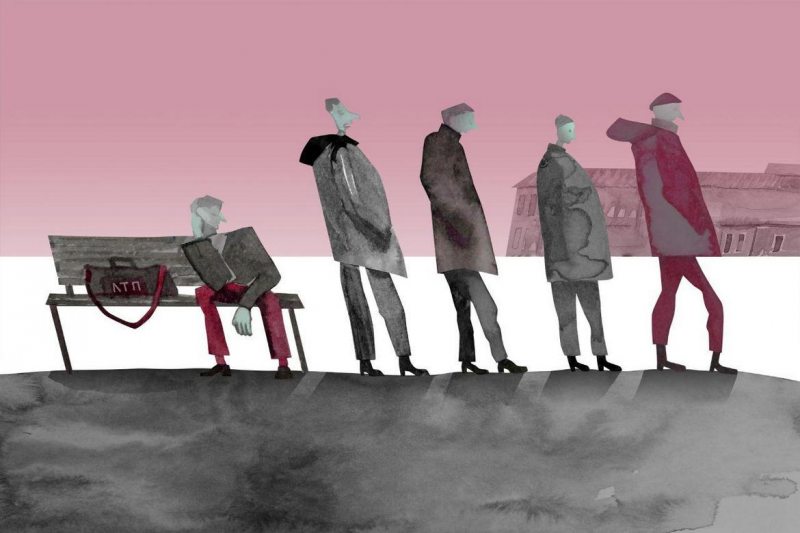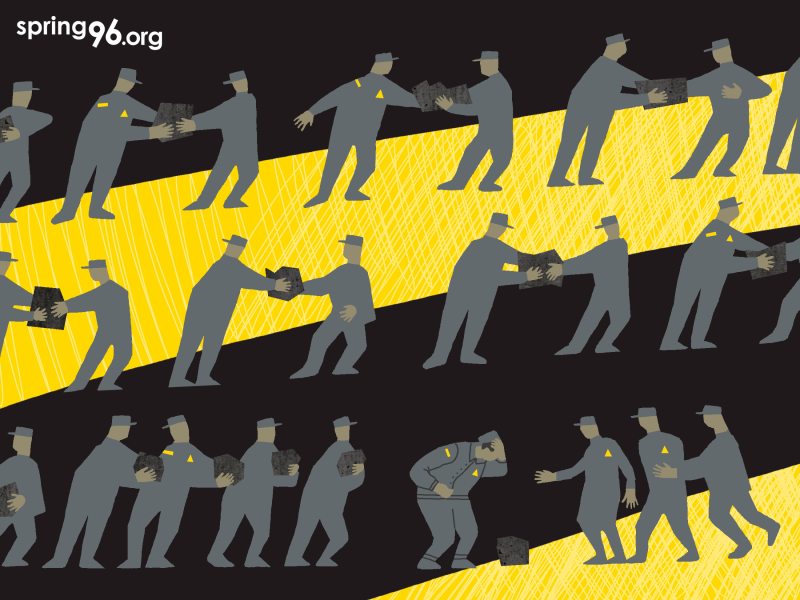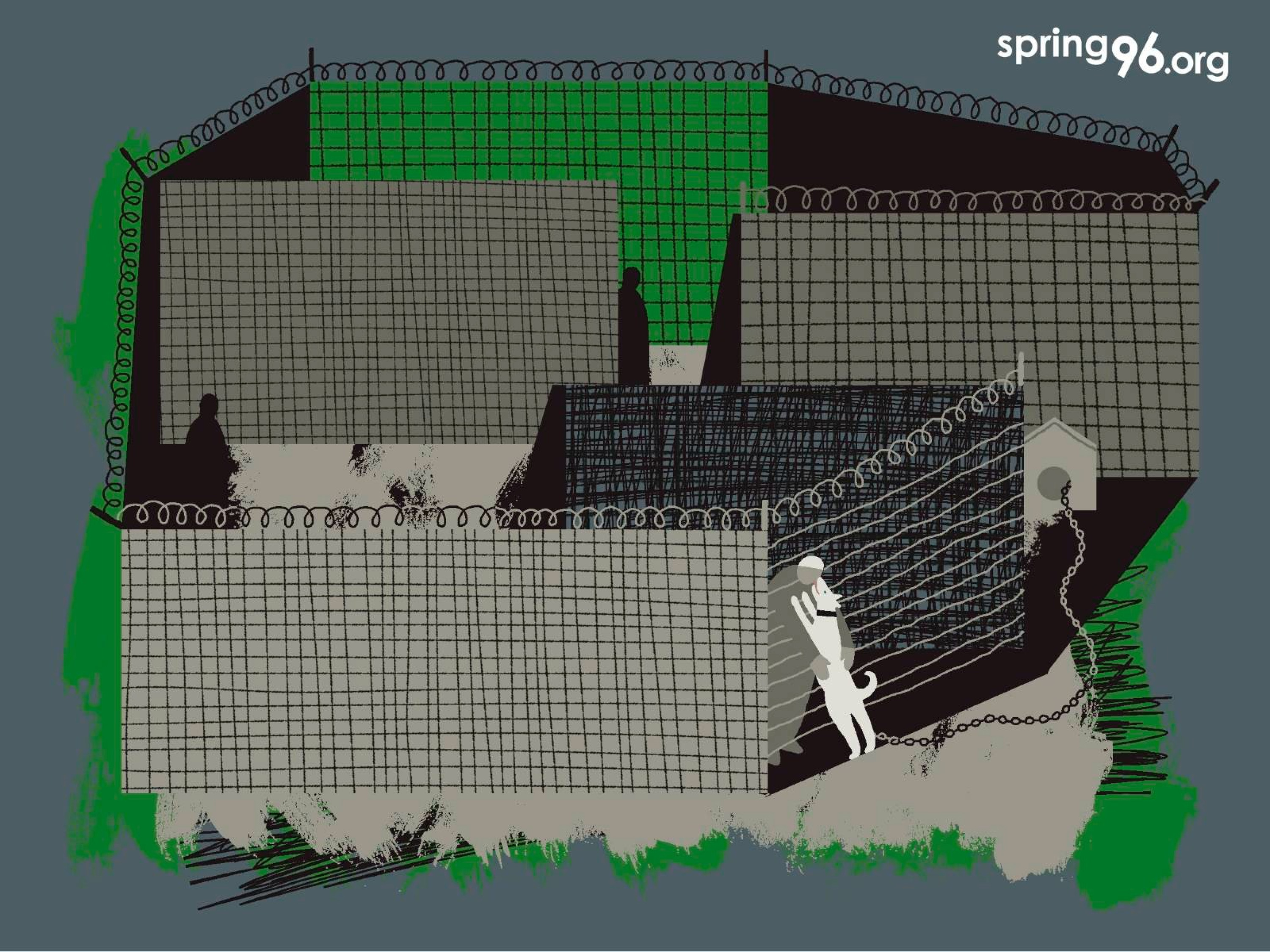Forced labor in Belarus in the light of global assessments
Modern slavery, including forced labor, is still used in the world and in our country in various forms. What is the situation with forced labor in the Belarusian prisons? What legal reforms are introduced in Belarus to end forced labor required by the state? Together with Viasna human rights activist Aleh Matskevich, we continue to talk about forced labor in Belarus in the context of international standards.

- Illustration by spring96.org
The issues discussed in the article:
- What is modern slavery?
- What is the situation with forced labor in the Belarusian places of detention?
- Are political prisoners in Belarus involved in forced labor?
- Forced labor for nonviolent participation in strikes
- Mandatory work for detainees in administrative cases in Belarus
- What is meant by labour duty for the development of the economy, and what is the situation with it in Belarus?
- What legal reforms are introduced in Belarus to end forced labor required by the state?

Forced labor: how the Belarusian government does (not) comply with international obligations
What is modern slavery?The term "modern slavery" is used by a number of influential international institutions, including the International Labour Organization, to summarize specific legal concepts, including forced labor, concepts related to forced labor (for example, debt bondage, slavery and slavery-like practices, and human trafficking), and forced marriage. To make this set of complex legal concepts measurable, global assessments focus on two key forms of modern slavery: forced labor and forced marriage. Two elements of modern slavery — forced labor and forced marriage — reflect the denial of economic and social freedom to people. Both relate to exploitation that a person cannot avoid due to threats, violence, coercion, and deception. Both involve imbalance and abuse of power. Both elements are embedded in systems of discrimination, scarcity, and poverty. Gaps in governance, legislation, and law enforcement create space for both of these abuses to occur. |
Are political prisoners in Belarus involved in forced labor?One of the most common violations is forced labor of people detained for nonviolent political crimes. CEACR regularly requests states that have ratified Conventions on the Prohibition of Forced Labour to take measures to review their legislation or the ways in which this legislation is applied in practice in order to ensure that legislation does not allow or is not used to impose penalties related to compulsory labour on persons expressing political views or peacefully opposing established political, economic, or the social system. Compulsory work (according to Article 98 of the Criminal Code) is widely practiced in Belarus for persons convicted of nonviolent political crimes. In Belarus, according to human rights defenders, 1,402 political prisoners are being held in places of detention as of May 23, 2024. The vast majority of them have been sentenced to criminal terms for participating in peaceful protests and for other nonviolent political crimes. This figure may be many times higher due to the inability to track the fate of all political and civic activists who may have been prosecuted for their nonviolent position. National legislation aimed at combating extremism and terrorism is largely used for political persecution in the Republic of Belarus. |
Forced labor for nonviolent participation in strikesIn Belarus, among the political prisoners there are persons who were active participants in the strike movement in 2020–2021. These are Aliaksandr Kukharonak, Hanna Ablab, Uladzimir Zhurauka, Aliaksandr Hashnikau, Siarhei Shelest, Andrei Paheryla, Siarhei Dziuba, Ihar Mints, Valiantsin Tseranevich, Siarhei Shametska, Aliaksandr Kapshull, and others. All of them are imprisoned and subjected to forced labor for nonviolent participation in strikes that did not affect the performance of vital basic services in both the public and private sectors, or for using other ways to promote workers' rights. Charges of "treason against the state", "creation of an extremist formation and participation in it" and other articles of the Criminal Code were used as legal grounds for criminal prosecution, and the criminal prosecution itself is of a political nature. This practice contradicts the obligations of the Republic of Belarus in accordance with the norms of Convention No. 29 and Convention No. 105 on the Abolition of Forced Labor. |
Mandatory work for detainees in administrative cases in BelarusCompulsory work cannot be assigned to administratively arrested persons under any circumstances. A common violation is the use of forced labor for those who were detained by law enforcement agencies but not convicted because they committed "minor offenses": those that are not serious enough to be prosecuted, but sufficient to require "re-education". In Belarus, for example, people with chronic alcoholism, drug addiction, or substance abuse can be sent to LTP (labour therapy centres), where they are required to work. In addition, the so-called "obligated" citizens (parents who are obliged to reimburse the costs spent by the state on the care of children who were or have been supported by the state) can be brought to administrative responsibility, which requires the mandatory performance of public works, for evading employment by court order or evading work. Such a measure of administrative influence on "obligated" parents pursues, first of all, educational goals, which goes against the practice of the ILO and the norms of Convention No. 29 and Convention No. 105 on the Abolition of Forced Labor. Also, contrary to the norms of Conventions No. 29 and 105 on the Abolition of Forced Labor, as well as national legislation, cases of forced labor by persons serving administrative arrest have recently been recorded in the Republic of Belarus. In addition, other vulnerable groups are also involved in forced labor: those sentenced to home confinement: 1, 2, citizens with criminal records, and former prisoners.
|
What is meant by labour duty for the development of the economy, and what is the situation with it in Belarus?This form of forced labor required by the state occurs when the state uses compulsory work to promote economic development, which is contrary to ILO Convention No. 105. In Belarus, various groups of the population participate in the forced removal of stones from the fields of state agricultural enterprises: military personnel and students, schoolchildren, employees of state institutions, football players, hockey players, and people sentenced to home confinement. In summer and autumn, various groups of the population are usually mobilized in Belarus to help with harvesting. Employees of the Ministry of Emergency Situations, students, state trade unions, military personnel, schoolchildren, representatives of public organizations, teachers, cadets, and other social groups come to the aid of state agricultural enterprises. |
What legal reforms are introduced in Belarus to end forced labor by the state?No progress has been made in Belarus in the area of reforming legislation related to the restriction or abolition of forced labor. Over the past years, steps have been taken to make cosmetic changes to the legislation, which either did not affect its essence, or, conversely, those steps led to a deterioration of the situation:
|


















